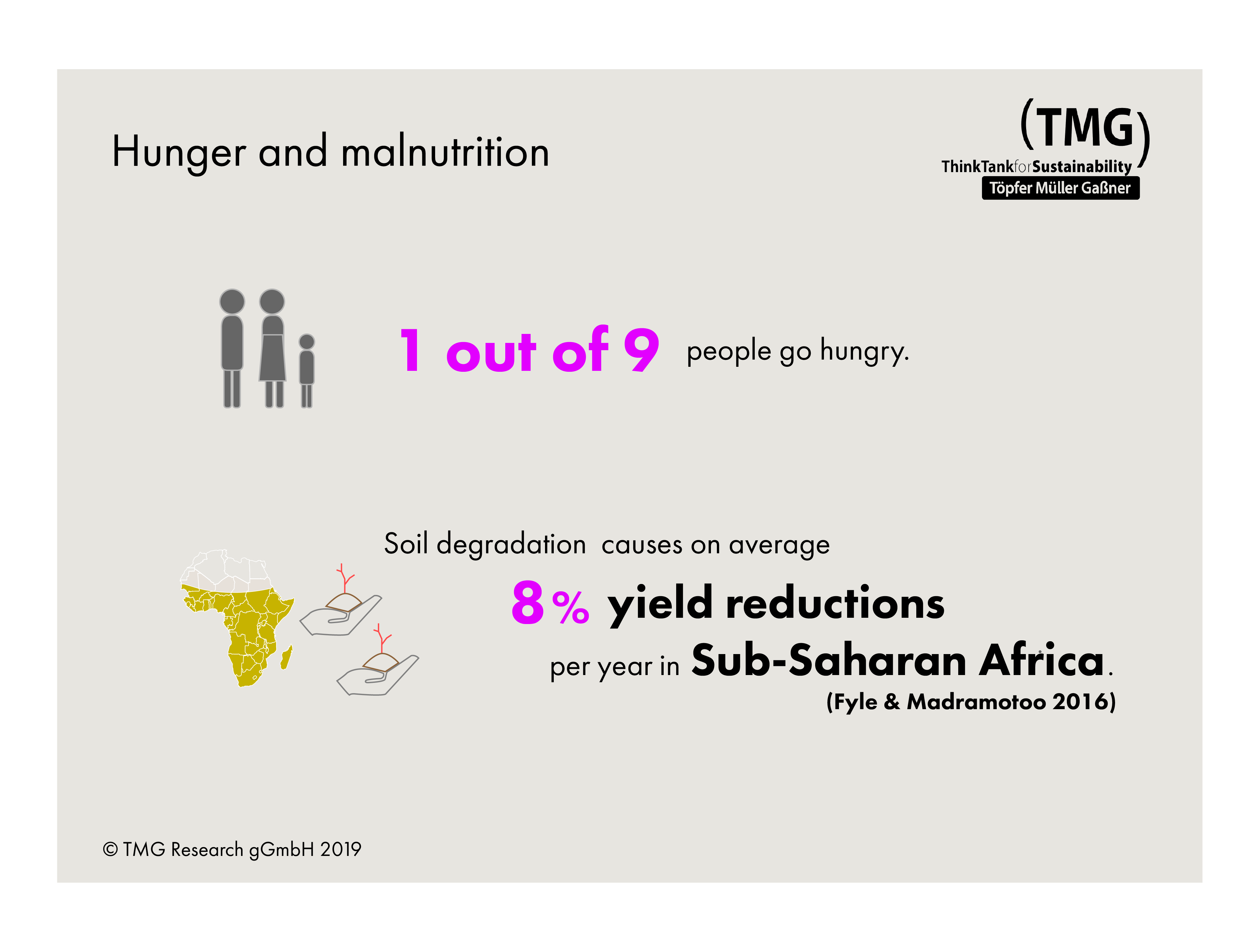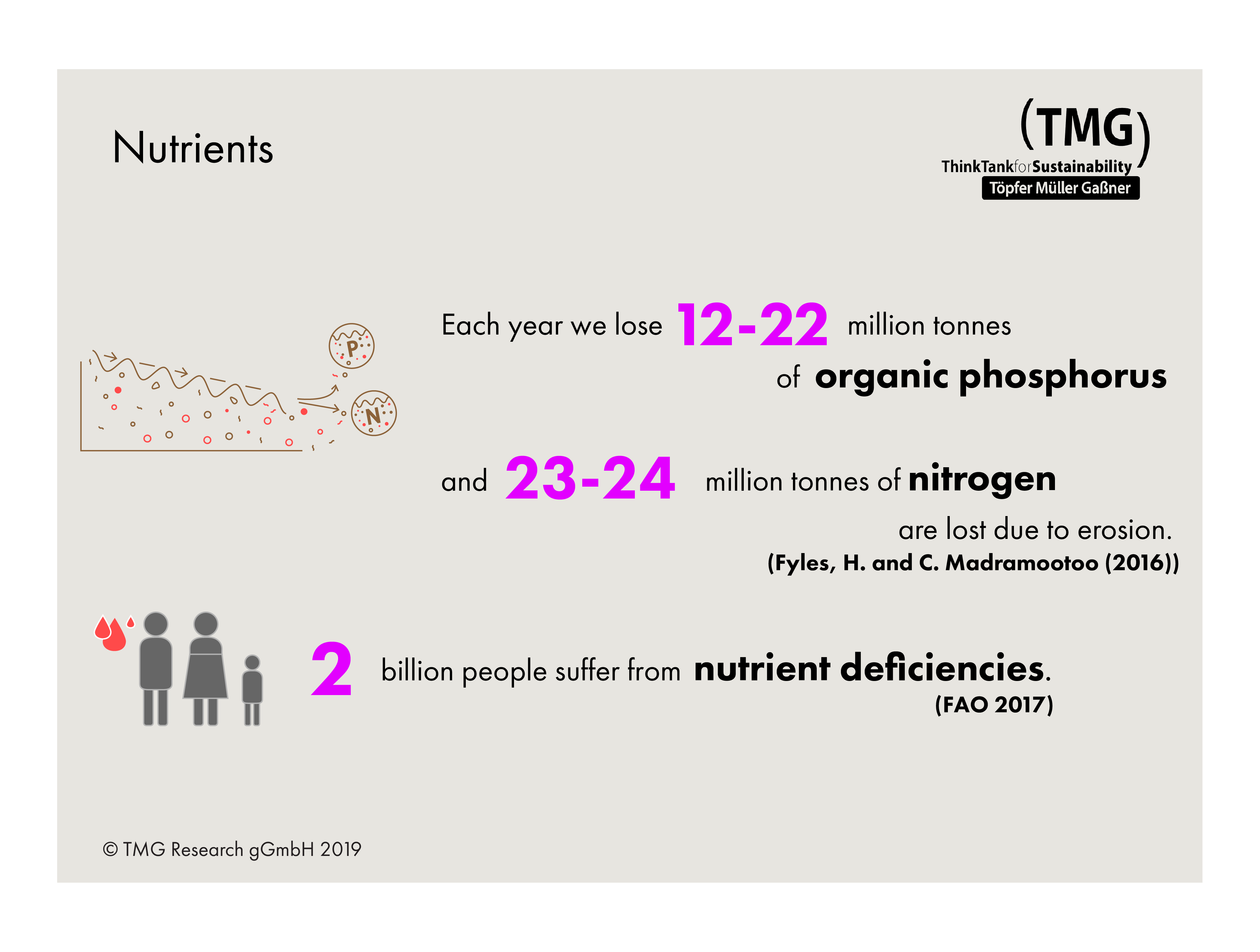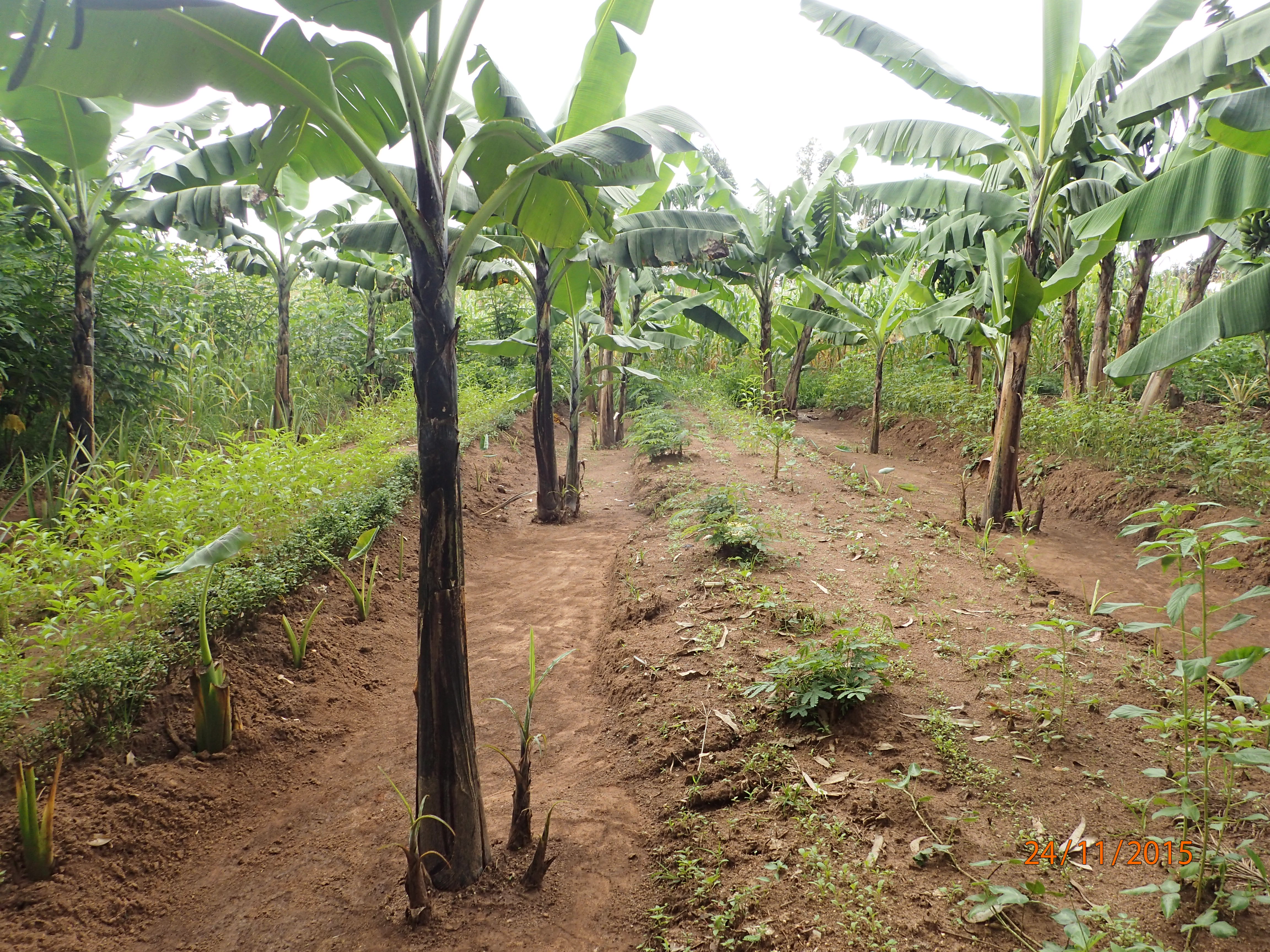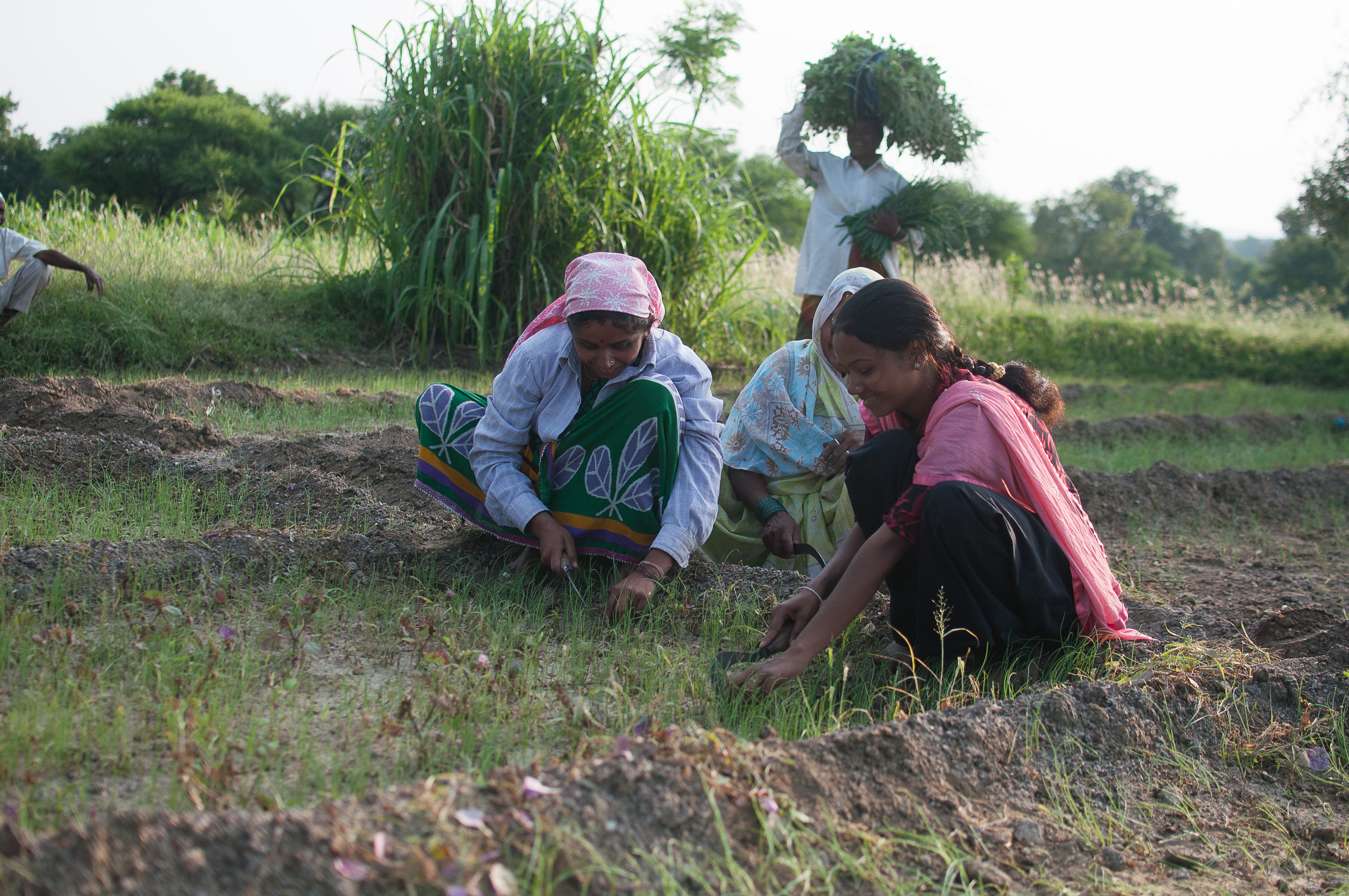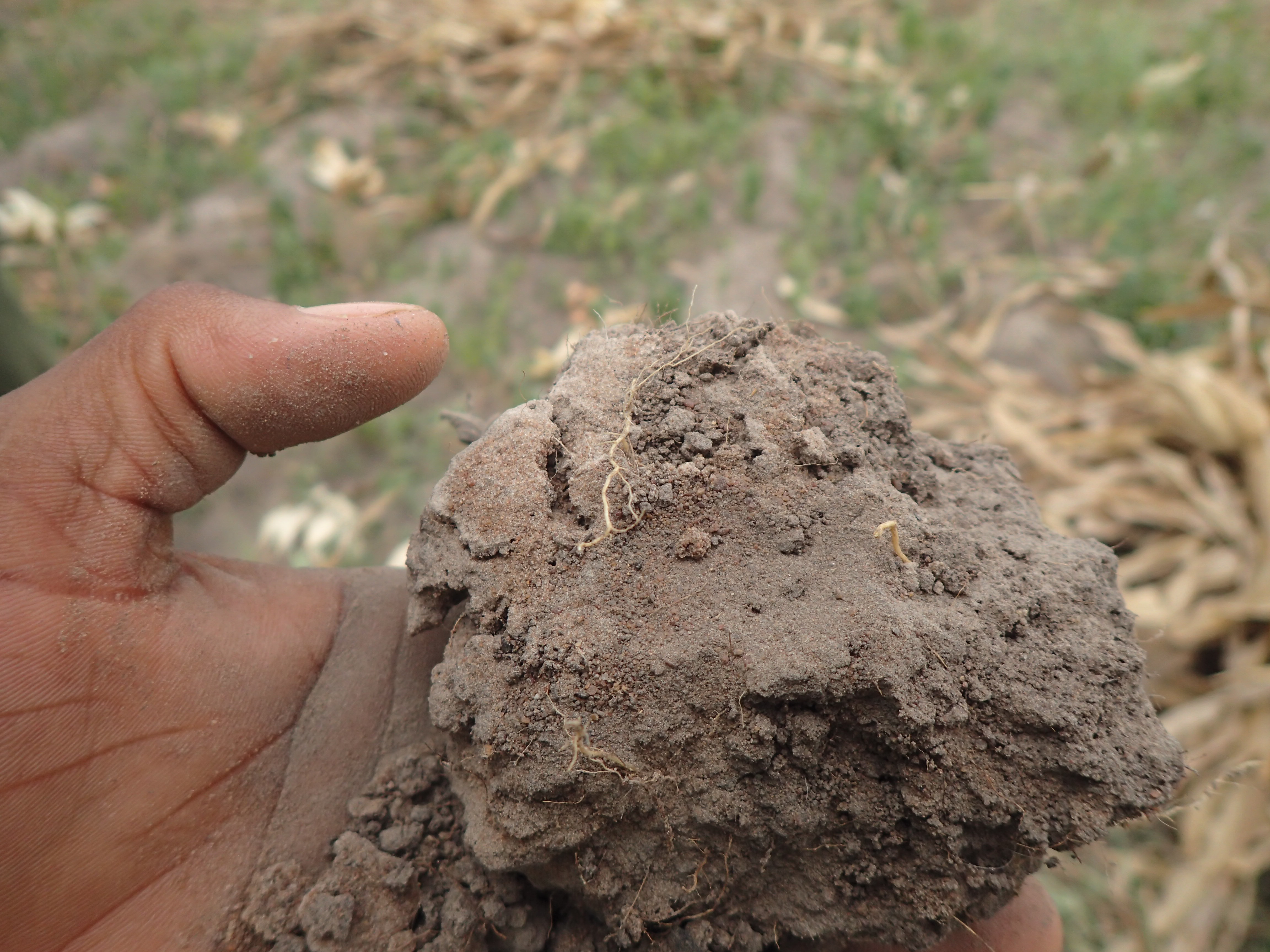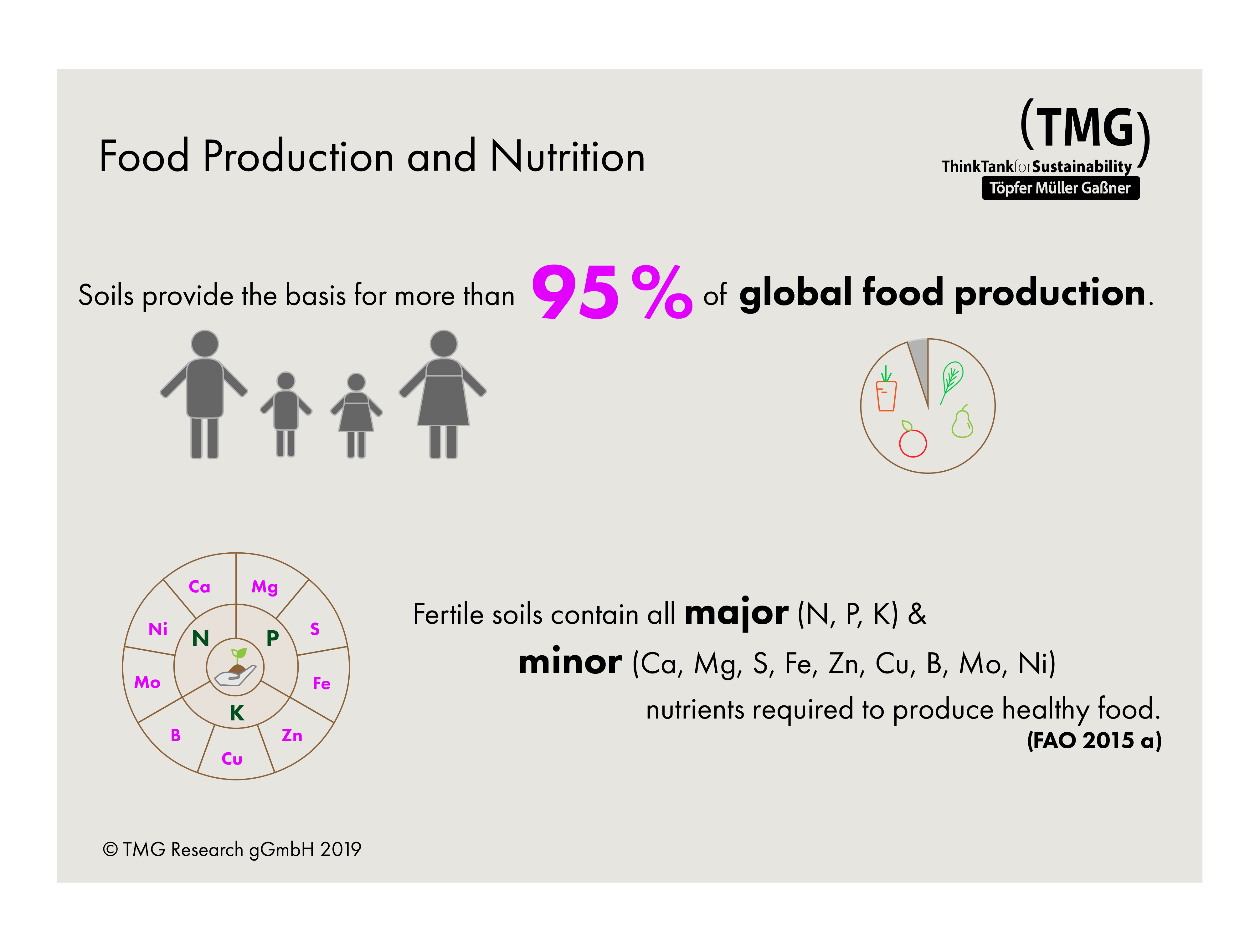
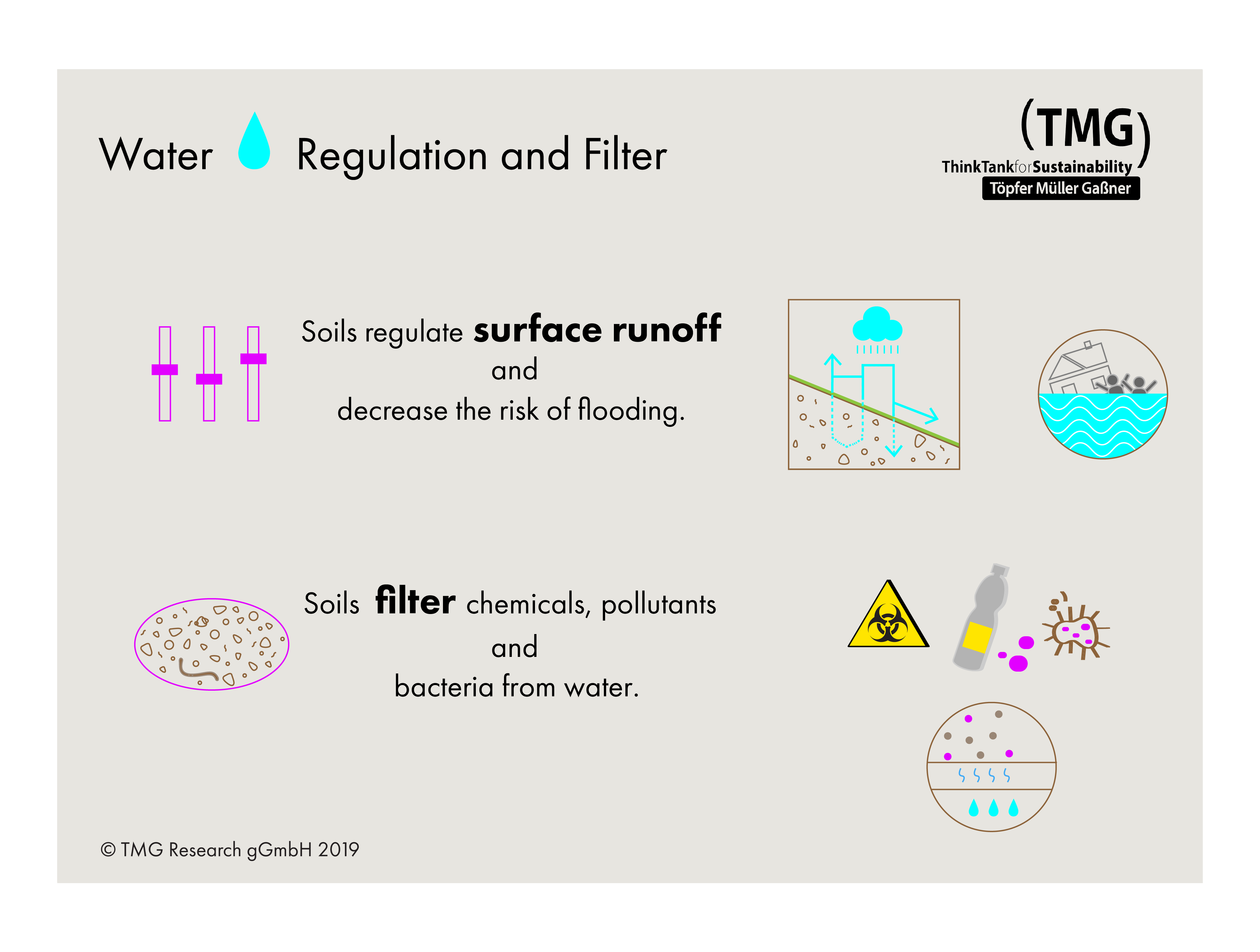
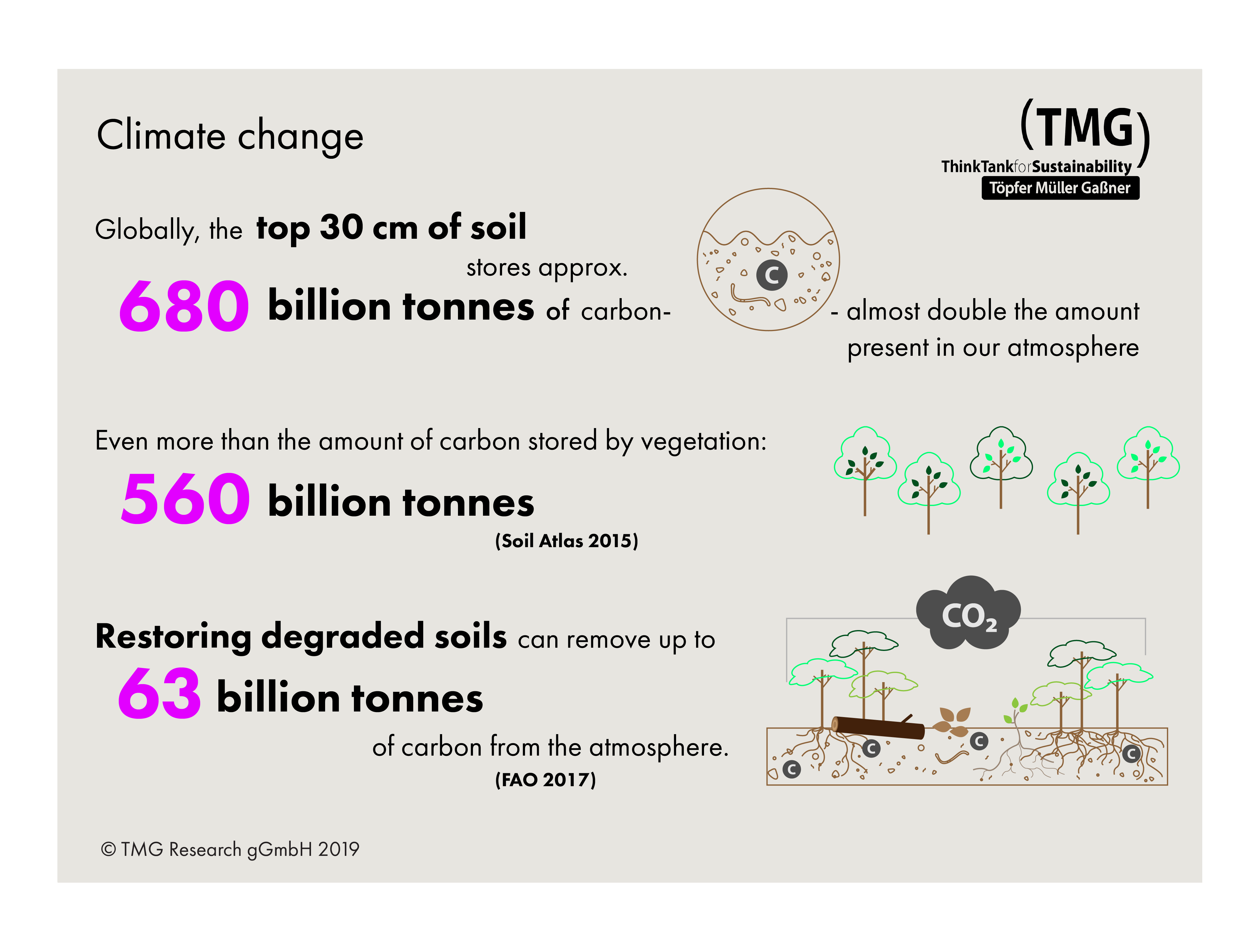
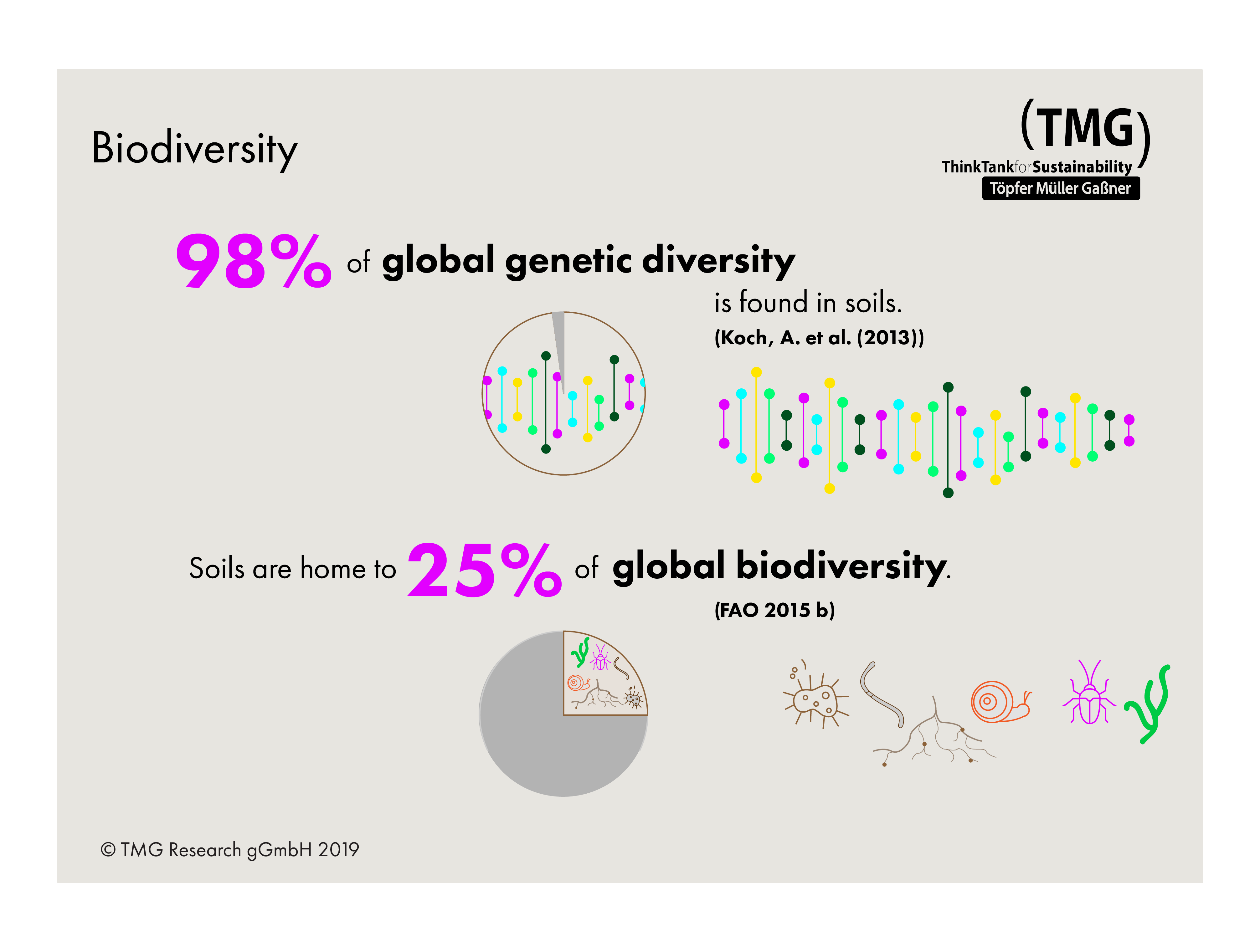
Soil may be the most important resource we don´t talk about. It fulfils the vital role of storing and filtering water and holding nutrients and microorganisms. Soil forms the basis for 95% of global food production. Furthermore, they are home to a quarter of global biodiversity and store more carbon than all land plants combined. However, we are losing this resource at an alarming rate; the equivalent of one soccer pitch of soil is eroded and rendered infertile every five seconds.
Until recently, soils were not high on political agendas nor a topic in public discourse. Only in the last decade has public attention to soils increased. In 2015, the UN celebrated the year of soils, and the UN Sustainable Development Goal 15.3 is devoted to halting land degradation.
To achieve the 2030 Agenda for Sustainable Development, we need to start managing soils more sustainably. Globally, one in five people depend on smallholder agriculture. Most of these households are poor. Agricultural growth and development are vital to lifting people in developing countries out of poverty. But pressure on agricultural land is increasing and many smallholders farm on degraded soils.
We are losing topsoil due to wind and water erosion at a rate of 24 billion tonnes each year. That is about 2.4 million times the weight of the Eiffel tower. Soil degradation leads to reduction in nutrient content, causing poor harvests and low nutritional value of food crops. In 2017, almost 821 million people suffered from hunger or malnutrition. Soil degradation also reduces the ability of soils to regulate water cycles and mitigate climate change.
Soil degradation and erosion have significant economic consequences. The Economics of Land Degradation initiative (ELD) has shown that the benefits of action taken against land degradation far outweigh the cost of inaction. In Africa alone, the loss of agricultural production, flooding and reduced water storage cost the equivalent of 127 billion USD per year. Acting against soil erosion can generate benefits of about 62.4 billion USD per year.
In 2017, the UN General Assembly acknowledged that achieving Land Degradation Neutrality (LDN) is an “accelerator to ending poverty and hunger, tackling inequality, empowering women and stimulating economic growth”. Improving the quality of agricultural land is one of the key strategies for poor people to achieve overall income growth.
The protection and restoration of soils is a key factor in achieving the Sustainable Development Goals (SDGs), as healthy soils are a prerequisite for eradicating poverty (SDG 1) and fighting hunger and malnutrition (SDG 2). The Global Soil Week is a platform and process to respond to and shape ongoing policy debates on sustainable land management, food security and land governance. Global Soil Week brings together a diverse range of actors – farmers, policy-makers, researchers and civil society organisations – to learn from experience and develop an enabling environment for soils.
Technologies and practices for sustainable land management (SLM) have been developed and tested over several decades. Thanks to initiatives such as the “World Overview of Conservation Approaches and Technologies (WOCAT)”, this knowledge base is accessible for practitioners around the world.
“Sustainable land management (SLM) is the use and management of land resources – soil, water, animals and plants – to produce goods to meet changing human needs, while ensuring the long-term productive potential of these resources and maintenance of environmental functions.”
(FAO 2015)
Yet, the problem of soil degradation persists. The “Global Land Outlook” published by UNCCD in 2017 refers to “poor management practices” as one of the “most significant pressures on land resources”.
Why do these “poor management practices” persist? What can be done to overcome these and unlock the potential of soils for sustainable development? We know from many studies and experiences that farmers continue to face challenges in practicing SLM. Our own studies in Benin, Burkina Faso, Ethiopia, India and Kenya confirm this; even where SLM programmes to support smallholders have been implemented, farmers face substantial challenges in practicing sustainable land management. Our studies show that insecure access to land, deficits in delivery of agricultural extension services, and discrimination because of gender, ethnic group or age are just some of the barriers smallholders face.
To overcome these problems, innovative approaches and solutions are needed – social innovations, developed in community-led, inclusive processes.
This sites uses cookies. By continuing to browse your are agreeing to our use of cookies. Review our data privacy policy for more information.
accept